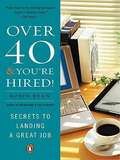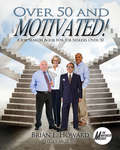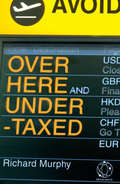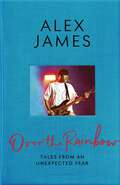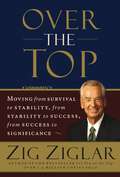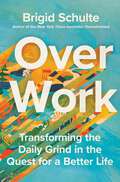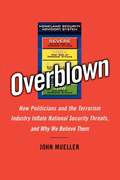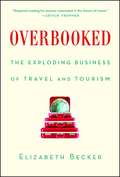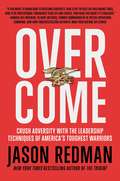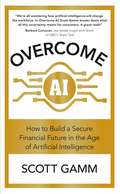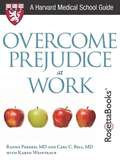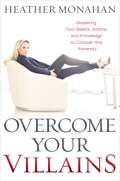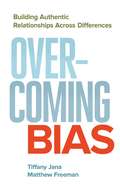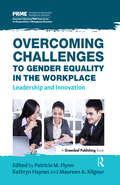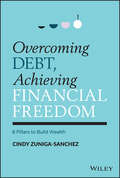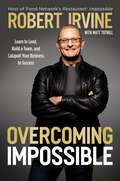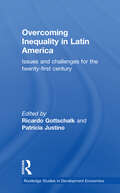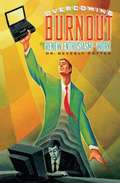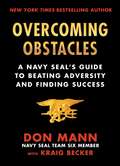- Table View
- List View
OvaScience
by Tom Nicholas Noah Fisher Toby Stuart G. Felda HardymonIn early April 2012, Michelle Dipp, MD, Ph.D, CEO and co-founder of OvaScience, had just received a buyout offer from PG Ventures, a private equity firm interested in acquiring the innovative fertility treatments company. The company's first promising fertility treatment, AUGMENT (Autologous Germ-line Mitochondrial Energy Transfer), had the potential to improve egg quality, increase the success of IVF cycles, and decrease the incidence of multiple births (i.e., twins, triplets). OvaScience had been in operation since 2011, and AUGMENT had not yet reached the market. Dipp and her partners had high hopes for the success of AUGMENT and the impact the underlying technology could have on millions of infertility cases around the world. How fast might Dipp and her team grow OvaScience? Would they have the resources? Dipp considered the best way to build out OvaScience's business model and whether AUGMENT's potential outweighed the PG Ventures offer.
Over 40 & You're Hired!
by Robin RyanView Robin Ryan's posts on the Penguin Blog A vital new job search approach customized for people over forty- from the author of 60 Seconds & You're Hired! With unemployment hitting all time highs, the over- forty crowd is struggling to land new jobs. America's top career counselor offers her market-tested program that shows readers how to effectively stand out and appeal to employers amid age discrimination and floods of competition. In Over 40 & You're Hired!, Robin Ryan will inspire readers to jump-start their careers and secure new, better-paying jobs. She encourages them to tap into the "hidden job market" (where 80 percent of all jobs are found), explains how to create targeted resumes and master the interview, and outlines how to overcome any age-related stereotypes they may encounter in their job hunt. Ryan has created a guide of valuable advice and detailed explanations culled from over twenty years of experience as a career counselor that people over forty will find indispensible as they look for work. .
Over 50 and Motivated: A Job Search Book for Job Seekers Over 50 (The Motivated Series)
by Brian E. Howard<p>It happened. It may have been a surprise, or it could have been anticipated, but at this point, what does it matter? You lost your job. Or, the frustrations at your current job have hit the boiling point. You just can't take it anymore! In either case, change is inevitable. But, you're over the age of 50 and intellectually or intuitively you know your age could be a factor in your job search. . .and, you are right. There are age-related biases that exist in the job market that will work against you. According to government statistics, job seekers over 50 encounter more difficulty in getting new jobs and suffer notably longer unemployment than their younger counterparts. But these statistics do not have to apply to you! <p>First, immediately stop with the worry and negative thinking. You're in a better position than you think. There are employers out there that not only will hire you, they are looking for you! The key is to find them, sell them on you, and get them to hire you. It's not as hard as you may think. In the <i>Over 50 and Motivated</i> book, Brian Howard will teach you a systematic approach for conducting a real-world job search based on years of frontline recruiting experience helping thousands of tenured job seekers just like you. He will teach you how to effectively conduct a job search in today's job market and techniques to successfully combat age biases. He will show you how to get job offers and your next fulfilling career position!</p>
Over Here and Undertaxed: Multinationals, Tax Avoidance and You
by Richard MurphyTax has rocketed to the top of the news agenda. When Amazon, Google and Starbucks were pulled up in front of the Public Accounts Committee, many were stunned at how little corporation tax they paid (if at all) in a time of austerity and government cuts. How can a tax gap of £12 billion be justified, when a CEO can take home $101 million a year? There is a growing realization that maybe we aren't ‘all in this together’, and what are Google's 'Dutch sandwich' and a 'double Irish' anyway? In this 30,000-word ebook Richard Murphy, a highly respected economic commentator and blogger, explains how we came to this situation, its origins and development after the 2008 economic crisis, who the villains of the piece are, and why. But this ebook also seeks answers and Murphy offers concrete and practical solutions in the face of growing public awareness, which politicians and companies will ignore at their peril as taxpayers vote with their feet. Part of the Brain Shots series, the pre-eminent source for high quality, short-form non-fiction.
Over the Rainbow: Tales from an Unexpected Year
by Alex JamesA raucous, behind-the-scenes account of the year Blur got back togetherThere is nothing that can touch the sound made by a close-knit group of people who have been playing together for years and years and years, playing as though their lives depended on it. For many years, all our lives did, and actually, I’d suddenly realised, they did still.One winter’s night, Alex James received an unexpected call. Blur had been invited to play their biggest gig ever: Wembley Stadium. The only trouble was, he and his bandmates hadn’t spoken to – or even shouted at – each other for years. And he now had five children, an out-of-control menagerie of cats, and a sprawling farm to run.This is the story of what happened next. Taking us behind the scenes of a raucous, rollercoaster year, Alex describes how the band made a surprise – and emotional – return, recording an acclaimed album and playing sold-out shows around the world, from Colchester to Colombia and beyond. Plus: how he went on a crash diet to fit back into his ‘Britpop Trousers,’ somehow organised an entire festival of his own, and tried to perfect the recipe for a giant Frazzle. Over the Rainbow is a heartfelt and hilarious account of what it feels like to be catapulted back into the limelight with one of the world’s biggest bands. It is a love letter to Blur, to friendship and to music. And it shows us all that, however old – or hungover – we might feel, nothing’s ever truly over: it’s always just the start of the next thing.
Over the Top: Moving from Survival to Stability, from Stability to Success, from Success to Significance
by Zig ZiglarYou Have What It Takes to Go Over the Top! Drawing on forty years as a world-class motivational speaker and author, Ziglar identifi es and outlines in his best-selling Over the Top precisely how to achieve what people desire most from life--to be happy, healthy, and reasonably prosperous and secure. As Ziglar delves into the hows and whys of living life with values, character, honesty, integrity, and sensitivity, you'll learn to be more at peace with yourself and accomplish more with your skills and abilities. Over the Top will persuade you to develop what you have in order to be the best you can be. What you can do just may be astonishing! A talented author and speaker, Zi g Ziglar has an appeal that transcends barriers of age, culture, and occupation. His client list includes thousands of small and mid-sized businesses, Fortune 500 companies, government agencies, churches, and non-profit associations. Since 1970, he has traveled around the world delivering powerful life-improvement messages and encouraging individuals to change and grow.
Over Work: Transforming the Daily Grind in the Quest for a Better Life
by Brigid Schulte“Brigid Schulte is a vital voice on the future of work, and her carefully researched book lights the way to fewer hours, less stress, and more meaning.” ―Adam Grant, #1 New York Times bestselling author of Think Again and Hidden Potential, and host of the podcast WorkLifeFrom the New York Times bestselling author of Overwhelmed, a deeply reported exploration of why American work isn’t working and how our lives can be made more meaningfulFollowing Overwhelmed, Brigid Schulte’s groundbreaking examination of time management and stress, the prizewinning journalist now turns her attention to the greatest culprit in America’s quality-of-life crisis: the way our economy and culture conceive of work. Americans across all demographics, industries, and socioeconomic levels report exhaustion, burnout, and the wish for more meaningful lives. This full-system failure in our structure of work affects everything from gender inequality to domestic stability, and it even shortens our lifespans.Drawing on years of research, Schulte traces the arc of our discontent from a time before the 1980s, when work was compatible with well-being and allowed a single earner to support a family, until today, with millions of people working multiple hourly jobs or in white-collar positions where no hours are ever off duty. She casts a wide net in search of solutions, exploring the movement to institute a four-day workweek, introducing Japan’s Housewives Brigade—which demands legal protection for family time—and embedding with CEOs who are making the business case for humane conditions. And she demonstrates the power of a collective and creative demand for change, showing that work can be organized in an infinite number of ways that are good for humans and for business.Fiercely argued and vividly told, rich with stories and informed by deep investigation, Over Work lays out a clear vision for ending our punishing grind and reclaiming leisure, joy, and meaning.
Overblown: How Politicians and the Terrorism Industry Inflate National Security Threats, and Why We Believe Them
by John MuellerWhy have there been no terrorist attacks in the United States since 9/11? It is ridiculously easy for a single person with a bomb-filled backpack, or a single explosives-laden automobile, to launch an attack. So why hasn't it happened? The answer is surely not the Department of Homeland Security, which cannot stop terrorists from entering the country, legally or otherwise. It is surely not the Iraq war, which has stoked the hatred of Muslim extremists around the world and wasted many thousands of lives. Terrorist attacks have been regular events for many years -- usually killing handfuls of people, occasionally more than that. Is it possible that there is a simple explanation for the peaceful American homefront? Is it possible thatthere are no al-Qaeda terrorists here? Is it possible that the war on terror has been a radical overreaction to a rare event? Consider: 80,000 Arab and Muslim immigrants have been subjected to fingerprinting and registration, and more than 5,000 foreign nationals have been imprisoned -- yet there has not been a single conviction for a terrorist crime in America. A handful of plots -- some deadly, some intercepted -- have plagued Europe and elsewhere, and even so, the death toll has been modest. We have gone to war in two countries and killed tens of thousands of people. We have launched a massive domestic wiretapping program and created vast databases of information once considered private. Politicians and pundits have berated us about national security and patriotic duty, while encroaching our freedoms and sending thousands of young men off to die. It is time to consider the hypothesis that dare not speak its name: we have wildly overreacted. Terrorism has been used by murderous groups for many decades, yet even including 9/11, the odds of an American being killed by international terrorism are microscopic. In general, international terrorism doesn't do much damage when considered in almost any reasonable context. The capacity of al-Qaeda or of any similar group to do damage in the United States pales in comparison to the capacity other dedicated enemies, particularly international Communism, have possessed in the past. Lashing out at the terrorist threat is frequently an exercise in self-flagellation because it is usually more expensive than the terrorist attack itself and because it gives the terrorists exactly what they are looking for. Much, probably most, of the money and effort expended on counterterrorism since 2001 (and before, for that matter) has been wasted. The terrorism industry and its allies in the White House and Congress have preyed on our fears and caused enormous damage. It is time to rethink the entire enterprise and spend much smaller amounts on only those things that do matter: intelligence, law enforcement, and disruption of radical groups overseas. Above all, it is time to stop playing into the terrorists' hands, by fear-mongering and helping spread terror itself.
Overblown
by John MuellerWhy have there been no terrorist attacks in the United States since 9/11? It is ridiculously easy for a single person with a bomb-filled backpack, or a single explosives-laden automobile, to launch an attack. So why hasn't it happened? The answer is surely not the Department of Homeland Security, which cannot stop terrorists from entering the country, legally or otherwise. It is surely not the Iraq war, which has stoked the hatred of Muslim extremists around the world and wasted many thousands of lives. Terrorist attacks have been regular events for many years -- usually killing handfuls of people, occasionally more than that. Is it possible that there is a simple explanation for the peaceful American homefront? Is it possible that there are no al-Qaeda terrorists here? Is it possible that the war on terror has been a radical overreaction to a rare event? Consider: 80,000 Arab and Muslim immigrants have been subjected to fingerprinting and registration, and more than 5,000 foreign nationals have been imprisoned -- yet there has not been a single conviction for a terrorist crime in America. A handful of plots -- some deadly, some intercepted -- have plagued Europe and elsewhere, and even so, the death toll has been modest. We have gone to war in two countries and killed tens of thousands of people. We have launched a massive domestic wiretapping program and created vast databases of information once considered private. Politicians and pundits have berated us about national security and patriotic duty, while encroaching our freedoms and sending thousands of young men off to die. It is time to consider the hypothesis that dare not speak its name: we have wildly overreacted. Terrorism has been used by murderous groups for many decades, yet even including 9/11, the odds of an American being killed by international terrorism are microscopic. In general, international terrorism doesn't do much damage when considered in almost any reasonable context. The capacity of al-Qaeda or of any similar group to do damage in the United States pales in comparison to the capacity other dedicated enemies, particularly international Communism, have possessed in the past. Lashing out at the terrorist threat is frequently an exercise in self-flagellation because it is usually more expensive than the terrorist attack itself and because it gives the terrorists exactly what they are looking for. Much, probably most, of the money and effort expended on counterterrorism since 2001 (and before, for that matter) has been wasted. The terrorism industry and its allies in the White House and Congress have preyed on our fears and caused enormous damage. It is time to rethink the entire enterprise and spend much smaller amounts on only those things that do matter: intelligence, law enforcement, and disruption of radical groups overseas. Above all, it is time to stop playing into the terrorists' hands, by fear-mongering and helping spread terror itself.
Overblown
by John MuellerWhy have there been no terrorist attacks in the United States since 9/11? It is ridiculously easy for a single person with a bomb-filled backpack, or a single explosives-laden automobile, to launch an attack. So why hasn't it happened? The answer is surely not the Department of Homeland Security, which cannot stop terrorists from entering the country, legally or otherwise. It is surely not the Iraq war, which has stoked the hatred of Muslim extremists around the world and wasted many thousands of lives. Terrorist attacks have been regular events for many years -- usually killing handfuls of people, occasionally more than that. Is it possible that there is a simple explanation for the peaceful American homefront? Is it possible that there are no al-Qaeda terrorists here? Is it possible that the war on terror has been a radical overreaction to a rare event? Consider: 80,000 Arab and Muslim immigrants have been subjected to fingerprinting and registration, and more than 5,000 foreign nationals have been imprisoned -- yet there has not been a single conviction for a terrorist crime in America. A handful of plots -- some deadly, some intercepted -- have plagued Europe and elsewhere, and even so, the death toll has been modest. We have gone to war in two countries and killed tens of thousands of people. We have launched a massive domestic wiretapping program and created vast databases of information once considered private. Politicians and pundits have berated us about national security and patriotic duty, while encroaching our freedoms and sending thousands of young men off to die. It is time to consider the hypothesis that dare not speak its name: we have wildly overreacted. Terrorism has been used by murderous groups for many decades, yet even including 9/11, the odds of an American being killed by international terrorism are microscopic. In general, international terrorism doesn't do much damage when considered in almost any reasonable context. The capacity of al-Qaeda or of any similar group to do damage in the United States pales in comparison to the capacity other dedicated enemies, particularly international Communism, have possessed in the past. Lashing out at the terrorist threat is frequently an exercise in self-flagellation because it is usually more expensive than the terrorist attack itself and because it gives the terrorists exactly what they are looking for. Much, probably most, of the money and effort expended on counterterrorism since 2001 (and before, for that matter) has been wasted. The terrorism industry and its allies in the White House and Congress have preyed on our fears and caused enormous damage. It is time to rethink the entire enterprise and spend much smaller amounts on only those things that do matter: intelligence, law enforcement, and disruption of radical groups overseas. Above all, it is time to stop playing into the terrorists' hands, by fear-mongering and helping spread terror itself.
Overbooked: The Exploding Business of Travel and Tourism
by Elizabeth BeckerTourism, fast becoming the largest global business, employs one out of twelve persons and produces $6.5 trillion of the world’s economy. In a groundbreaking book, Elizabeth Becker uncovers how what was once a hobby has become a colossal enterprise with profound impact on countries, the environment, and cultural heritage. This invisible industry exploded at the end of the Cold War. In 2012 the number of tourists traveling the world reached one billion. Now everything can be packaged as a tour: with the high cost of medical care in the U.S., Americans are booking a vacation and an operation in countries like Turkey for a fraction of the cost at home. Becker travels the world to take the measure of the business: France invented the travel business and is still its leader; Venice is expiring of over-tourism. In Cambodia, tourists crawl over the temples of Angkor, jeopardizing precious cultural sites. Costa Rica rejected raising cattle for American fast-food restaurants to protect their wilderness for the more lucrative field of eco-tourism. Dubai has transformed a patch of desert in the Arabian Gulf into a mammoth shopping mall. Africa’s safaris are thriving, even as its wildlife is threatened by foreign poachers. Large cruise ships are spoiling the oceans and ruining city ports as their American-based companies reap handsome profits through tax loopholes. China, the giant, is at last inviting tourists and sending its own out in droves. The United States, which invented some of the best of tourism, has lost its edge due to political battles. Becker reveals travel as product. Seeing the tourism industry from the inside out, through her eyes and ears, we experience a dizzying range of travel options though very few quiet getaways. Her investigation is a first examination of one of the largest and potentially most destructive enterprises in the world.
Overcome: Crush Adversity with the Leadership Techniques of America's Toughest Warriors
by Jason RedmanRetired Navy SEAL and New York Times bestselling author Jason Redman divulges how to triumph over adversity using proven Special Operations habits and mindsets. Adversity can often catch you by surprise and leave you struggling with what to do next. What if you could confront any adversity, from the biggest challenges-the loss of your job, divorce, health issues, bankruptcy-to normal daily challenges-a late flight, a disappointing phone call, a missed promotion, a bad day-and not just survive it, but thrive afterwards?Redman was horrifically wounded in Iraq in 2007 when he was shot at close range through the face and arm. After 40 surgeries, including extensive facial reconstruction and skin grafts, he came back from this experience stronger than ever-despite carrying scars and injuries he will have for the rest of his life. Redman went on to launch two successful companies and speaks all over the country on how to build better leaders through his Overcome mindset.Overcome is based on extensive research and interviews with America's toughest warriors-including retired 4-star Admiral William McRaven, retired Navy SEAL Jocko Willink, retired 4-star General Stanley McChrystal, and others. In this book, Redman teaches:How to survive any life ambushHow to move from defense to offense using the proactive techniques of SEAL teamsHow to strengthen your endurance during long-term trials How to rediscover and thrive in your life purpose How to lead your team (whether in business or family) to success How to compete with the top 1% in your field How to stay the course even when you want to quitAnd moreSome people move through adversity and others fall underneath it. Learn how you can be counted among those who will Overcome.
Overcome AI: How to Build a Secure Financial Future in the Age of Artificial Intelligence
by Scott GammYOUR GUIDE TO SURVIVING AND THRIVING IN THE AI ECONOMY. No one can be completely sure what the future of work is going to look like, but one thing's for certain - it will be completely transformed by AI. That means an uncertain future for millennials, including the need to switch jobs and learn new skills. Taking steps towards financial freedom and early retirement now, on your own terms, will put you in the driving seat for the bumpy road ahead. In HOW TO BUILD AND AI-PROOF FINANCIAL FUTURE, Yahoo Finance reporter and Wall Street expert Scott Gamm's sets out a practical guide to financial freedom and early retirement. Discover:* Why retiring early will become a necessity, not just a goal. * How much money you'll need to live well without a steady 9-5 job.* The importance of reducing or eliminating debt.* How to invest in the stock market.* How to use alternative retirement savings vehicles.* And what some of the world's most respected billionaires advise for achieving financial independence in the new economy. HOW TO BUILD AN AI-PROOF FINANCIAL FUTURE is full of actionable investing tips that can be applied within minutes of reading. This is truly the first book to provide a clear plan for wealth-building and financial security in the automation era.
Overcome AI: How to Build a Secure Financial Future in the Age of Artificial Intelligence
by Scott GammYOUR GUIDE TO SURVIVING AND THRIVING IN THE AI ECONOMY.No one can be completely sure what the future of work is going to look like, but it will likely be completely transformed by artificial intelligence. That means an uncertain future for Millennials, including the need to switch jobs, change occupations and learn new skills. Taking steps towards financial freedom and early retirement now, on your own terms, will put you in the driver's seat for what could be a bumpy road ahead. In OVERCOME AI, Wall Street expert Scott Gamm sets out a practical roadmap to financial freedom and early retirement. Discover:Why retiring early will become a necessity, not just a goal.How much money you'll need to live well without a steady 9-5 job.The importance of reducing or eliminating debt.How to invest in the stock market.How to use alternative retirement savings vehicles.OVERCOME AI is full of actionable investing information that can be applied within minutes of reading. This is truly the first book to provide a clear plan for wealth-building and financial security in the automation era.
Overcome Prejudice at Work (Harvard Medical School Guide)
by Carl C. Bell Ranna ParekhAlmost all of us have been on the receiving end of prejudice, whether for our age, race, skin color, religion, weight or some other superficial reason. Being subtly ignored, disrespected or treated as a stereotype is hurtful and sometimes shocking, particularly when it comes from someone at work. In their book Overcome Prejudice at Work, Drs. Ranna Parekh and Carl C. Bell, explain how to cope with these insults and respond constructively. The book includes 15 useful tips, including: Be strategic. Thinking through a response rather than reacting in anger will benefit you more in the long run. Get some perspective on your experience. A friend or mentor can help you sort out what's worth fighting against and what you're better off ignoring. Use your anger constructively. Instead of lashing out, turn that energy into something positive, like helping others cope with or push back against prejudice. Adopt a beginner's mind in a new situation. Just because your ideas were ignored at your last job, don't start your new one assuming the same thing will happen. Being defensive will create new problems and won't solve the old one. Change what you can. Not everyone or every situation can be changed. Think strategically about what you can change; if it's not enough, consider moving on. ABOUT THE AUTHOR Dr. Ranna Parekh practices at Massachusetts General Hospital and McLean Hospital, and is an instructor of Psychiatry at Harvard Medical School. She also directs the Center for Diversity in the department of psychiatry at MGH. Dr. Carl C. Bell is a professor of psychiatry and public health at the University of Illinois at Chicago, and president and CEO of Community Mental Health Council & Foundation, Inc., a Chicago-based, comprehensive community mental health clinic. During a 40-year career, Dr. Bell has gained a national and international reputation for his work on racism, stress, and resiliency. Karen Weintraub is a science journalist who has written for The Boston Globe USA Today and the BBC, among others. She also helped write "The Autism Revolution," and "Fast Minds: How to Thrive if You Have ADHD (Or Think You Might)," also by Harvard Health Publications.
Overcome Your Villains: Mastering Your Beliefs, Actions, and Knowledge to Conquer Any Adversity
by Heather MonahanWhether you&’re facing the glass ceiling, a toxic work environment, or anything in between, limit-breaking female founder Heather Monahan&’s 3-Step BAK process will help you evaluate and eliminate any outside or self-defeating blockers between where you are now and where you deserve to be.If you&’ve ever felt alone, down, defeated, or discouraged—this book&’s for you.If you&’ve ever been unsure of your next move or felt your confidence slip just when you needed it the most—this book is definitely for you.Author and entrepreneur Heather Monahan will help you learn the easy but remarkable steps you can take to overcome the negative people and other challenges we all encounter at work and at home, find real and lasting happiness, and achieve the success you deserve in your career and in your personal life.Growing up in poverty, Heather leapfrogged the tremendous obstacles in her life to reach the pinnacle of success in business—only to lose it all when she was fired by the villain who was her new boss. She has seen the worst of the worst when it comes to the destruction a toxic workplace can have on someone&’s perception of themselves and their outlook for the future. In these pages, she lights the beacon on your path towards stepping into and then stomping out your fear to reach your full potential—regardless of the level of trauma you&’ve experienced or are currently experiencing in your workplace.Overcome Your Villains will help you learn:Heather&’s 3-Step BAK process to evaluate your situation and identify a clear path forward.How to deal with (or overcome) a toxic environment, whether that be at work, at home, or in your own head.All the options you have to reach your full potential, and how to immediately start pursuing them.
Overcoming Bias: Building Authentic Relationships across Differences
by Matthew Freeman Tiffany JanaControl, Conquer, and Prevail! Everybody's biased. The truth is, we all harbor unconscious assumptions that can get in the way of our good intentions and keep us from building authentic relationships with people different from ourselves. Tiffany Jana and Matthew Freeman use vivid stories and fun (yes, fun!) exercises and activities to help us reflect on our personal experiences and uncover how our hidden biases are formed. By becoming more self-aware, we can control knee-jerk reactions, conquer fears of the unknown, and prevail over closed-mindedness. In the end, Jana and Freeman's central message is that you are not the problem--but you can be the solution.
Overcoming Challenges to Gender Equality in the Workplace: Leadership and Innovation (The Principles for Responsible Management Education Series)
by Kathryn Haynes Patricia M. Flynn Maureen A. KilgourMany businesses and organizations are increasingly aware of the case for promoting gender equality, both within and outside their organizational boundaries. Evidence suggests that gender equality in the workplace boosts performance, and legal frameworks in many countries mandate specific action on gender inequality in the workplace. However, despite organizational policies on promoting equality and equal opportunities, there remain challenges to be overcome in many businesses, including throughout their supply chains. The book provides research rationales as to why responsible organizations must address the issue of gender equality in the workplace. It also presents case studies, action research and examples of good practices, describing how businesses and organizations are working to promote gender equality in various contexts. The book is designed to support the rationale for gender equality in business and organizations, providing evidence of implementation of gender equality in the workplace and advice on how to deal with and overcome challenges. It will be of interest to academics, employees, practitioners, policy-makers, businesses, institutions and organizations.
Overcoming Debt, Achieving Financial Freedom: 8 Pillars to Build Wealth
by Cindy Zuniga-SanchezTransform your financial situation with easy-to-follow advice from a first-generation professional In Overcoming Debt, Achieving Financial Freedom: 8 Pillars to Build Wealth, lawyer, business owner, and first-generation professional Cindy Zuniga-Sanchez delivers a practical and actionable blueprint for financial independence. Full of easy-to-apply advice for young adults, students, and early-career professionals, the book is a holistic guide to responsibly managing money and debt while building your nest egg. In the book, you&’ll explore how to be a responsible consumer, how to budget, save, invest, pay off debt, build credit, and increase your income. You&’ll also understand much of what school didn&’t teach you about student loans. The author explains: Strategies to create a realistic and actionable debt repayment plan that will save you money and time Strategies for maximizing your income by negotiating your salary and finding profitable &“side hustles&” Techniques for straightforward forms of investing that responsibly balance risk and reward The money strategies that she put into place and resources that she used to go from having six-figures of debt to a multiple six-figure net worthAn essential money resource for students, professionals, entrepreneurs, young families, and anyone else hoping to reduce their financial stress and improve their lives, Overcoming Debt, Achieving Financial Freedom is the simple and powerful money guide you&’ve been waiting for.
Overcoming Impossible: Learn to Lead, Build a Team, and Catapult Your Business to Success
by Robert IrvineMake achieving your goals and finding success possible with this one-of-a-kind guide by Robert Irvine, popular host of Food Network&’s Restaurant: Impossible.Robert Irvine knows a thing or two about business. For over 200 episodes of Food Network&’s hit show Restaurant: Impossible, he&’s helped failing entrepreneurs make the necessary changes to reverse course and transform their businesses from the brink of collapse to sustainable enterprises. And he doesn&’t just talk a good game; Irvine is a successful entrepreneur himself with a family of companies to his credit, from frozen foods and liquor to protein bars, restaurants, a traveling live show, and a namesake foundation that gives back to America&’s veterans and first responders.Now Irvine is sharing the success secrets he has learned along the way so he can help others thrive. As he says in the book: &“I&’ve always wanted to write this book, and now I finally have enough hindsight to analyze the moves that transformed me from an aspiring entrepreneur to a successful one.&” In this book, you will:Learn how to stop micromanaging.Understand what really motivates you, how to be accountable, and how to manage ego.Foster the traits of authenticity and trust into your culture.Change your mindset around technology and social media.
Overcoming Incumbent Challenges: How to Knock Down Organizational Barriers to Pursue New Directions
by Mark W. JohnsonCompanies innovate all the time: products, marketing efforts, efficiency. But rarely do incumbent companies make the leap to reinvent their existing business model or create new ones in response to opportunities in the white space-the range of potential activities outside a company's core and beyond its adjacencies. The prevailing business model is essential for managing and executing operations and innovation efforts focused on growing the core or pursuing adjacencies. But it can be poison to new business models. In this chapter, strategic innovation expert Mark Johnson shows how, using the four-box business model framework-customer value proposition (CVP), profit formula, key resources, and key processes-leaders can make plans for seizing transformational growth by setting expectations that are convincing and realistic in the larger corporate context. Johnson cites numerous company examples that illustrate the pitfalls that can stymie transformation efforts-and uses the example of Hilti to show how to get it right. This chapter was originally published as Chapter 8 of "Seizing the White Space: Business Model Innovation for Growth and Renewal."
Overcoming Inequality in Latin America: Issues and Challenges for the 21st Century (Routledge Studies in Development Economics)
by Ricardo Gottschalk Patricia JustinoLatin America is faced with the challenge of achieving the Millennium Developmental Goal to halve poverty in the region by 2015. Historically, this region has experienced persistently high levels of inequality and poverty, the causes and consequences of which are analytically examined here. Adopting a multidimensional approach, this informative book focuses on the mechanisms that lead to higher inequality and emphasizes the role of macroeconomics, trade rules, capital flows and the political electoral process. It analyzes how inequality has hindered development, how it interacts with a nation’s economic, social and political processes, and how inequality constrains these processes in ways that weakens the prospect of establishing and sustaining a dynamic, wealthy and creative society. An international team of specialist contributors investigate and explain these crucial issues. Examining the key economic policies and reforms which have exacerbated the region’s extremely high inequality levels, throughout this book they prescribe an alternative range of policy suggestions to help alleviate inequality and provide the foundations for more equitable development.
Overcoming Job Burnout
by Beverly A. PotterJob burnout is something that doesn't go away - especially in a chaotic economy. It is a kind of job depression caused by feelings of powerlessness - loss of control over one's work. The effect is devastating. The victim dreads going to work. Productivity falls and life becomes hell. Burnout is stressful, but it is not caused by stress. Going on a vacation provides relief until the vacation is over and one must return to the job. OVERCOMING JOB BURNOUT describes how burnout can take hold and how to turn it around. Docpotter offers 8 proven strategies for increasing personal power and renewing enthusiasm for working. Book is filled with practical advice that the reader can implement immediately.
Overcoming Obstacles: A Navy SEAL's Guide to Beating Adversity and Finding Success
by Don Mann Kraig BeckerWisdom and inspiration to help you achieve your goals. A former Navy SEAL and current motivational speaker, Don Mann specializes in helping others achieve success in every aspect of life— personal and professional—by using techniques employed by Navy SEALs. In Overcoming Obstacles, Mann zeroes in on finding ways to conquer the obstacles that readers face in their lives, no matter what they may be. This volume includes three subsections dedicated to helping the reader surmount life’s difficulties: Identifying the Obstacles in Your LifeGetting Out of Your Own WayFinding Success Featuring practical advice, inspirational quotes, engaging stories, and interesting anecdotes, Overcoming Obstacles will give readers the tools they need to triumph in the face of adversity.
Overcoming Obstacles and Finding Success: The Power of Performance Psychology
by Kevin R. Harris Emily PicaThis valuable book identifies common obstacles in any endeavor that can impact on success and offers highly accessible exercises to help readers overcome them. Featuring expertise from dozens of high-level performers regarding their journey to the top of their domain, it offers practical advice on how to separate yourself from your competition and stand out from the crowd.All performers, whether beginners or world class, in sports, business, the arts, and beyond, have encountered obstacles in their careers. Acknowledging that every successful person must work hard, this book offers a blueprint for those wanting to map out their own success based on over twenty years of research into performance, and the authors’ experiences of guiding career development among their mentees and teaching courses on the topic. Each chapter includes a case study that exemplifies one of the most common obstacles individuals face in their efforts to be successful, including topics like impostor syndrome, artificial ceilings, facing rejection, and not allowing for rest or recovery. Following this, the chapter goes on to provide a series of engaging exercises for readers to reflect on their own performance and techniques, and enables them to strategize ways they can modify their performance to achieve better results. Throughout, the book is underpinned by theoretical frameworks from performance psychology, clear actionable steps for achieving success, and suggested readings for further study.Written with career development in mind, the applications of this book are far-reaching, with relevance for all those looking to excel in their chosen fields.

